AudioCulture
The noisy library of New Zealand music
Te pātaka korihi o ngā puoro o Aotearoa
David Long
From his early years in experimental band Six Volts, to guitarist for The Mutton Birds and doing music design and soundtracks for film and television, Long’s belief that art music and pop music can, and should, intertwine is a theme that recurs throughout his career.
Long grew up in Upper Hutt, and in 1980 when he was 15 he joined alternative new wave band Tin Syndrome, a popular live act in Wellington. Long played guitar and channelled musical influences from melodic post-punk bands, from both overseas (Talking Heads, XTC, the Clash) and New Zealand (Blam Blam Blam, Toy Love, The Clean). Tin Syndrome’s off-beat, energetic sound was influential in defining the character of the Wellington sound of the early 80s. They remained together until 1984.
Around this time Long was introduced to members of Primitive Art Group, who were at the centre of the Braille Collective, a Wellington-based loose collective of experimental musicians. He began playing in bands (Jungle Suite, Rabbitlock) with Braille Collective members, and in 1987 he teamed up with Janet Roddick, David Donaldson, Steve Roche (the trio who later became Plan 9) as well as Neill Duncan and Anthony Donaldson, to form Six Volts.
Six Volts’ music existed on the margins of rock, classical, jazz and free-form improv.
This adventurous, genre-breaking band pushed boundaries and created music that refused to be categorised, existing instead on the margins of rock, classical, jazz and free-form improv.
“Six Volts were almost pop-influenced, but with weirdness,” Long told AudioCulture. “For people who are quite staunchly experimental, we were probably a total sell-out. But I never gave a shit about that. I just wanted to make music that pushes my boat out.”
Their quirky sound got Six Volts a lot of work and for three years they made a living touring and playing in bars and restaurants. They also did the occasional children’s TV show and performed at the Edinburgh Fringe Festival.
As well as guitar, Long played other stringed instruments, including banjo and mandolin. His habit of going to the library and borrowing one album of world music and one of experimental jazz began to open up a world of musical colours to him, especially when he discovered Duke Ellington. But Long used these influences in unexpected ways.
“I think of Ellington’s music as being really interesting colours. Colour and texture is quite a defining thing for me. So, in Six Volts I started getting interested in making guitar feedback. But trying not to do it in a big raucous sense.”
When he was 21, Long bought a cassette four-track and began experimenting with home recording. However, Six Volts was a band that thrived on playing live rather than in the studio. “We were all terrified of recording, I think. All our recordings, when I hear them, they’re all way too polite.”
But some recordings just worked. In 1989, Six Volts were asked to play on the studio album Songs From the Front Lawn, to flesh out songs by Don McGlashan and Harry Sinclair’s musical/theatre duo The Front Lawn.
Even in these early days of his career, Long was finding his original voice, something he can particularly hear on this album. “I heard something from that album a while ago, on the radio,” he says. “And I was like, wow, I was 23 here and I can hear me.”
Long and Don McGlashan clicked musically, and Long suggested that if McGlashan ever wanted to form another band to give him a call. A couple of years later, in 1991, that’s exactly what happened. Six Volts members were feeling a bit burned out, and Long moved to Auckland to co-found the Mutton Birds.
Long’s textural guitar sound quickly became an essential ingredient of the Mutton Birds’ sound. And the creative chemistry between McGlashan’s songwriting and Long’s guitar playing gave rise to some of New Zealand’s most iconic rock songs.
long’s textural guitar sound quickly became an essential ingredient of the Mutton Birds’ sound.
“I’d see Don’s songs as these beautifully-drawn blueprints and I was adding swathes of colour,” Long says. “And I was sometimes there to mess it up. Over the years I think we appreciated that we complemented each other in those ways. I saw myself as doing the landscape behind the story of the song.”
It was important to Long that the “landscapes” he created sounded uniquely New Zealand, to complement all the New Zealand imagery in McGlashan’s songs. “I wanted to play guitar without an American accent. I didn’t want to be too bluesy and I didn’t want to be too English. We felt like a New Zealand band, and it felt like an important cultural thing to do at the time.”
In 1992, through McGlashan, Long had his first taste of creating music for a feature film – the New Zealand drama, Absent Without Leave. McGlashan was commissioned to write the score, and Mark Austin and Long were asked to add some extra songs to sit alongside McGlashan’s work. Two of Long’s former Six Volts bandmates, Janet Roddick and David Donaldson, also took part in the project. Long recorded the songs in his home studio and played guitars.
“That was the first feature film I worked on, so that was really exciting. I’d done a couple of little short films before that. But this film showed me the process.”
Around the same time, concurrently with The Mutton Birds, Long became involved in writing music for dance performances and films. He found this process even more informative as to how he could make music and images creatively co-exist. Throughout his career he has worked with choreographers Shona McCullagh (Mondo Nuevo, Quick), Raewyn Hill (Be Still My Soul, We Are Gathered Here Today) and Douglas Wright (Rapt, Black Milk, Forever).
Long describes his time with Douglas Wright, beginning with Forever in 1993, as one of the highlights of his career. “Working with Douglas was amazing. I learned so much about art and ideas … He was brave artistically. And when it didn’t work, it fell. But when it worked, you flew. And I found it really inspiring and exhilarating.”
Early on, Wright gave Long a pivotal piece of creative advice: to remember that he was just one element amongst a lot of other things. “I think that’s a really important thing when you’re scoring. If you say too much, or if you’re too busy, you pull focus away from the images. You don’t want to do that. You want to enhance and push up, but you’re one element.”
This approach became integral to the collaborative way Long approached soundtracks as he moved more and more into scoring for film and television. “I started really thinking about images and sound and how they worked together.”
In 1995 the Mutton Birds moved to London. In his downtime, Long began composing music for documentaries, TV and short films. Projects were hard to come by.
In 1996, while still in the UK, The Mutton Birds were invited by Peter Jackson to record a cover of Blue Öyster Cult’s classic ‘(Don’t Fear) the Reaper’ for horror-comedy The Frighteners. The song was recorded in a London studio.
“We just did it in a way that felt right to us … There’s theremin right through it, and throughout the whole outro I did a whole lot of full-on guitar feedback. And I was quite amazed it all stayed in. Peter and Fran [Walsh] liked the energy.”
The finished audio file was delivered to New Zealand via an early telephone modem and took a whole day to send.
Although Long had known Peter Jackson and Fran Walsh from Wellington, The Frighteners was the first project they’d worked on together and the start of many future collaborations.
At the end of 1997, just as the Mutton Birds seemingly had everything they wanted, including a deal with international record label, Long quit the band. “Do I really want to be doing this when I’m 40?” he asked himself. “I don’t.”
He moved back to Wellington, thinking he might change careers altogether. “I thought I’d stop music because I felt a bit burned out and tired … I came back to New Zealand and did four years of philosophy and history. And did Honours in both of those.”
A self-taught producer, Long received accolades early on.
While he studied, Long continued playing in bands and making music in his home studio. From 2001, he also began producing albums for some of the country’s most iconic bands and musicians. For this, he worked in larger, existing studios rather than at home.
A self-taught producer, Long received accolades early on. The second album he produced was Fur Patrol’s 2001 debut Pet, which won four Tuis at the 2002 New Zealand Music Awards. One of those went to Long for Producer of the Year.
He found producing albums for other bands was a double-edged sword. “If the album does well,” he told Simon Sweetman in his Podcast 51, “that’s all due to the band. And if it does badly, it’s the producer’s fault.” It’s not always a great paying gig either, he admits.
His production credits have also included albums by Barry Saunders (Zodiac, Red Morning), Dave Dobbyn (Available Light), and Leila Adu (Cherry Pie).
In the early 2000s, while production was underway for Lord of the Rings, Long teamed back up with his old Six Volts bandmates, who had now reinvented themselves as the music production company Plan 9.
“We had this idea of approaching Peter Jackson and Fran Walsh about doing the music of Middle Earth for Lord of the Rings,” he told AudioCulture. “They liked that idea and for the next four years we worked six months a year on that.”
Long and Plan 9 were tasked with creating musical sound design, which consisted of anything musical that wasn’t a part of the main score by US composer Howard Shore.
“I think Howard probably hates us,” Long laughs. “After film one [Fellowship of the Ring] we edited Howard’s music when Peter and Fran wanted it changed. And there wasn’t always time to go back and go through the whole process of Howard composing new music. So we would cut things from different films, and he didn’t like that. But I can understand Howard being really stressed out by that.”
For Fellowship of the Ring, only two minutes of Long and Plan 9’s music made it into the final cut – the hobbit band music at Bilbo Baggins’s eleventy-first birthday party. But even this amount was a happy surprise.
Throughout the LOTR trilogy, their musical design included giving the Ring its own musical personality. The Ring’s soundscape consisted of layers of Janet Roddick’s voice, sometimes clean, and sometimes distorted, depending on whether the Ring was seducing or controlling its possessor.
Long says of their process, “What started off as beautiful and pure, by the end was just noise … All the American mixers would call us ‘the distortion people’. It’s so not part of that [Hollywood] film world. Everyone’s trying not to do distortion. And we really embraced it.”
“We used to joke that when we were doing the sound of the Ring we were getting paid really well to make experimental music. An oxymoron,” Long says, laughing.
Aged 33 when he started working on Lord of the Rings and despite a successful and highly productive music career, he always earned only just enough to get by.
“I hardly ever had any more than five or ten dollars left in my bank account … But we own a house because of Lord of the Rings,” Long says about his home in Wellington. “It was the first time I actually ever earned over $20,000 in my life.”
For ‘The Hobbit’ long and Plan 9 composed the memorable song ‘The Misty Mountains Cold’.
Long has worked on nearly all of Peter Jackson’s films since then. Jackson brought back Long and Plan 9 to create atmospheric soundscapes for King Kong (2005) to blend with composer James Newton Howard’s score. And for The Lovely Bones (2009), Long created transitional music to complement the main score by one of his musical heroes – Brian Eno.
“When I worked on the Lovely Bones, which Stephen Gallagher and I wrote additional music for, Brian Eno was an incredibly generous composer. He was really happy to share. I made about 20 minutes of music.”
For The Hobbit (2012), Long and Plan 9 composed the memorable song ‘The Misty Mountains Cold’. “Everyone on the internet thinks it’s one of Howard Shore’s best melodies,” Long quips.
They set lyrics by J.R.R. Tolkien to be sung and hummed by the company of dwarves. And to make the scene believable, the actors who played the dwarves performed all the song’s parts themselves, though none were trained singers. “I spent three weeks of my life tuning dwarves’ humming,” Long says. “It’s really hard to hum for that long if you’re not a proper singer.”
‘The Misty Mountains Cold’ melody ended up featuring as a major theme in the score of The Hobbit and was used as the basis for the credits song by Neil Finn.
Reflecting back on all the work he’s done on Peter Jackson’s films, he says, “They were really great experiences. It was great to work in a big team, but you don’t have that much artistic say. You’re in a big machine and I learned a shitload about the process of film. But all the little films I’ve done, and good TV things, they’re the ones that are special.”
Long quickly realised he preferred not just taking on anything that paid, but instead purposefully pushed toward composing music for art films – projects where he was able to be himself and make “odd-sounding, atmospheric, beautiful music”.
This was exactly the kind of music he was able to make for both The Insider’s Guide to Happiness (2005) and The Insider’s Guide to Love (2006) – shows he describes as “New Zealand TV at its best”. This work picked up New Zealand Screen Awards for best original music for both soundtracks.
During 2005 and 2006 Long also worked on two seasons of Weta Workshop’s children’s television show, The WotWots.
“I loved making music for The WotWots,” he says. “I had a budget for players and … Steve Roche [from Six Volts] does a whole lot of brass. I used banjos and accordions and things like that. When you’re young you think ‘Oh, I want to make serious art’, but doing kids’ stuff I get to do way more interesting things. You can go quite out there.”
For comedy-drama Russian Snark (2010) Long collaborated again with Stephen Gallagher. The film is peppered with excerpts of experimental films and the composers were tasked with creating music to go with these. Once again, Long was able to return to his experimental roots and the score was nominated for the best original music award at the 2010 Qantas Film and Television Awards.
Jess Feast’s documentary Gardening with Soul (2013) follows 90-year-old Sister Loyala Galvin for a year, and Long’s gentle cues accompany scenes of the elderly nun in the community garden she oversaw. Despite all the big-name films he’s worked on he says it’s his score for this small film he gets acknowledgment for most often.
“It’s just an amazing subject for a documentary, so whatever happens it was hard to mess it up. Good craft with an excellent subject, that’s the best kind of film.”
For a documentary Long played bowed banjo, balalaika, percussion, and South American stringed instruments.
For the Sir Edmund Hillary feature documentary Beyond the Edge (2013), Long put his multi-instrumental skills to use playing bowed banjo, balalaika, percussion, two South American stringed instruments – the viola campara and quattro – as well as providing feedback. It also features performances by Riki Gooch (percussion), Richard Nunns (taonga pūoro) and Natalia Mann (harp). The score was nominated for best original music in a Film at the 2014 APRA Silver Scroll Awards.
Long’s talents were acknowledged by the academic world when he was appointed as the 2014-2015 Lilburn Composer-in-Residence at the New Zealand School of Music. He was the first composer in the scheme whose strengths were primarily in scoring for film and dance. Long had always thought of himself as a kind of “bastard composer”, somewhere between pop music and art music, and never thought he’d be accepted. But Wellington composer John Psathas thought that Long, who moved between both of these worlds, should go for it.
“John Psathas convinced me to apply. John’s a good friend and he describes me, and composers like me, as ‘coming from the jungle’, because we’ve had to make our living from music. When you’re in the jungle, even if I’m trying to do more art stuff, I’m still having to pay a mortgage.”
During the residency, Lopng was commissioned by Orchestra Wellington to compose ‘I’ll Hum the First Few Bars’ for amplified guitar, small orchestra, and musical robots. For this, Long worked with Dr Jim Murphy who designed and pre-programmed these “mechatronics” to respond to events in Long’s music.
That same year, when the two directors of rugby documentary The Ground We Won (2015) approached Long to compose the score he initially didn’t think he was the right person for the job.
“I said, ‘I think you should get someone else. I don’t want to do sports things any more’. And they said, ‘No, it’s not that kind of film’. It’s a really lovely film about community. And so, I did string quartet music. I think it’s a really lovely documentary. And people have been moved by the film and the score.”
By now, Long was incorporating more orchestral instruments into his film and TV scores. He’d realised that his lack of classical training was not a disadvantage at all, and that his experimental and rock pop background were huge assets. His score to Roger Donaldson’s McLaren (2017), for instance, deftly flicks between orchestral, jazz and electronics to depict the journey of New Zealand motor racing legend Bruce McLaren.
“The nice thing with that was it was set in the 60s, so we were thinking, ‘will we go into 60s-style music?’ Then I had this idea that I’d go electronic – real Krautrock-style. That [music] was going to be the race. That was going to be speed. And strings and acoustic instruments would be McLaren’s emotional journey. But these all get blurred. And then we had a few tracks where we really went 60s groovy jazz, and I had really good players.”
Long’s score for McLaren won the 2018 APRA award for best original music for a feature film.
In 2020 he was nominated for the same award for his score to The Luminaries. This BBC production, based on the novel by Eleanor Catton, was also scripted by the author. Long found Catton’s scripts so evocative he composed demo music in his home studio around scenes in the script. Long’s experimental “soundscapey” approach won out over more traditional-sounding music by other composers who were also vying for the job.
“We decided it wouldn’t be a period score, because I don’t do that. It’s quite orchestral but it’s not classical. We decided it would be mainly acoustic, but would be a contemporary score.”
Long recorded himself playing mandolin, banjo and cello, and even sampled an old out-of-tune music box he owned. He blended these instruments with a typically textural concoction of synths, samples and electronics. Strings and other orchestral instruments were recorded later, performed by contemporary music ensemble Stroma.
“We’d record at Massey for the orchestral stuff, but everything else was in my little room,” he says of his small home studio, packed full of all kinds of instruments and other music gear. “There’s this funny feeling when I’m bowing my little mandolin at 11 o’clock at night, and I’m thinking ‘This is so weird. Here I am in my little room doing this and it’s going to be on a BBC production’. It felt slightly naughty.”
“I get a real buzz out of what sound does to images. It just excites me.”
Long’s long-standing relationships with fellow-composers, directors, choreographers and musicians over multiple projects are testament to how successful a collaborator he is. Some relationships span nearly four decades.
In six-piece experimental band the Labcoats, Long is joined by three of his Six Volts collaborators – David Donaldson, Steve Roche and Anthony Donaldson (the latter also plays in four-piece band, Teeth, with Long).
Long teaches film composition at the Miramar Creative Centre, a Victoria University of Wellington campus next to the film production complex Park Rd Post. He says it’s hard work, but enjoys passing on his knowledge and experience to a younger generation.
When asked what he likes best about teaching, his answer is simple. “I get a real buzz out of what sound does to images. It just excites me. And I love showing my students how music and dialogue and effects all add to telling a story in different ways.”
In October 2020 David Long won the award for best original music in a series at the APRA Silver Scroll Awards for his work on the international co-production The Luminaries, based on Eleanor Catton’s acclaimed historical novel.
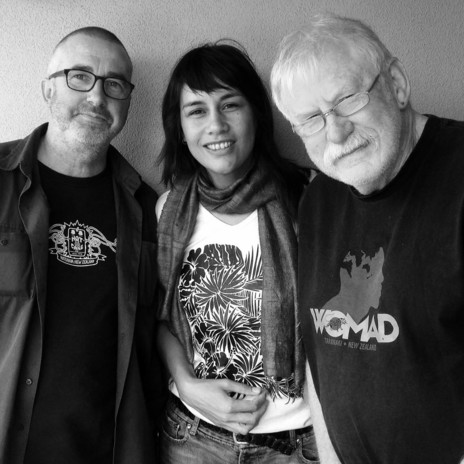
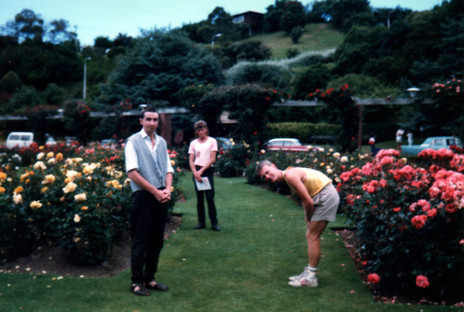
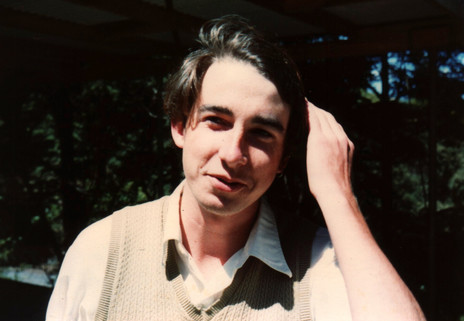
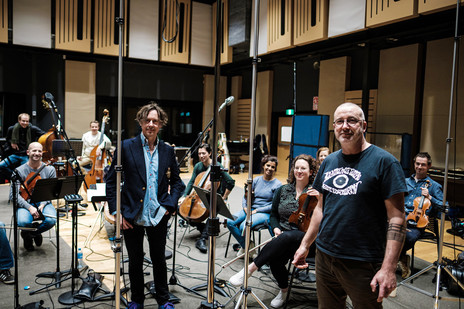
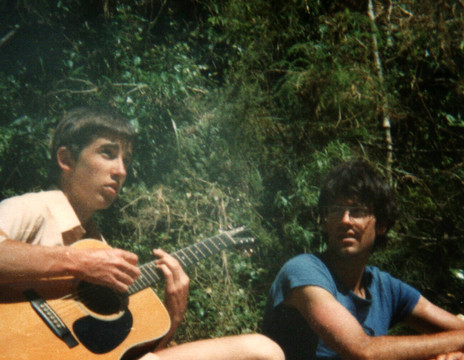
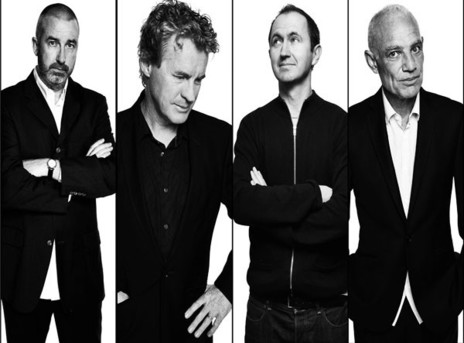
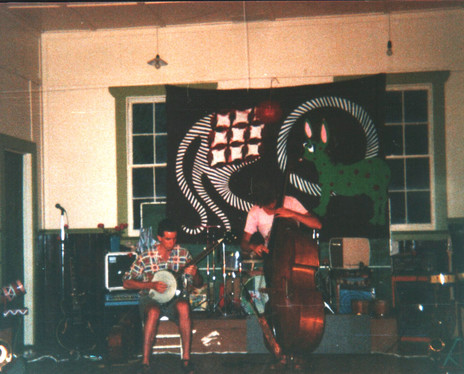
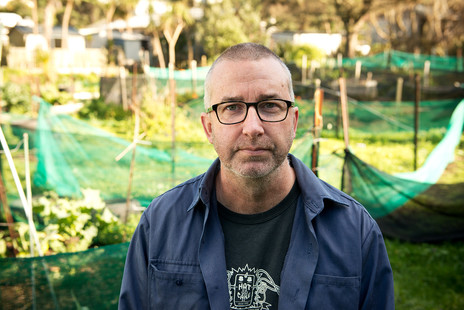
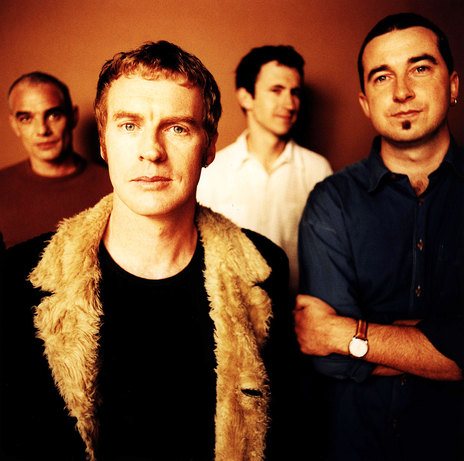
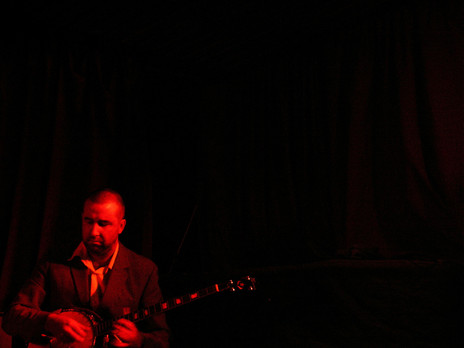
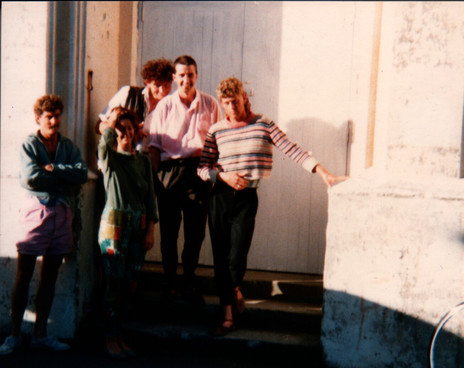
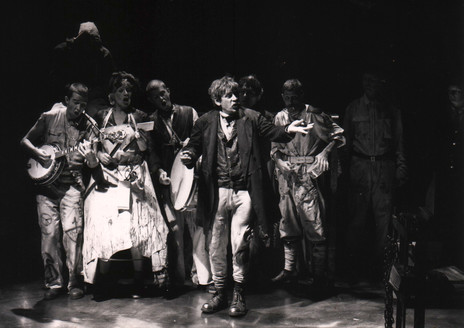
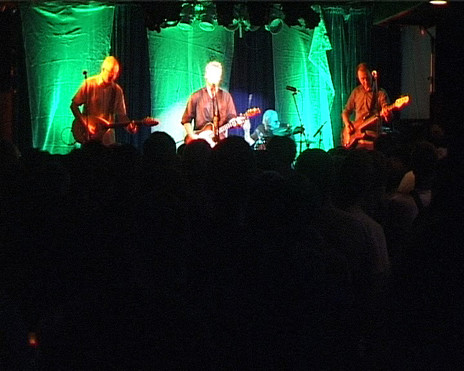
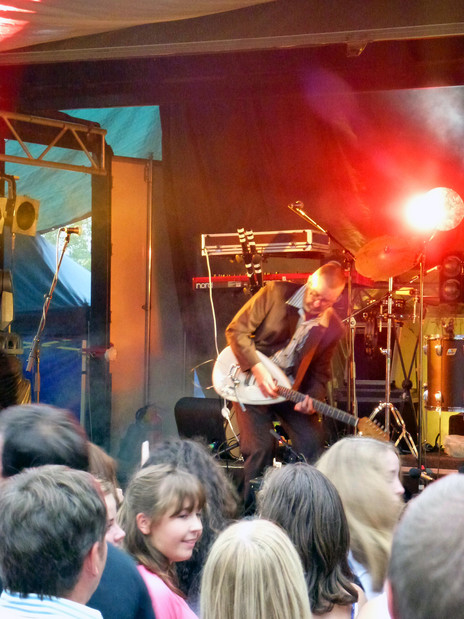
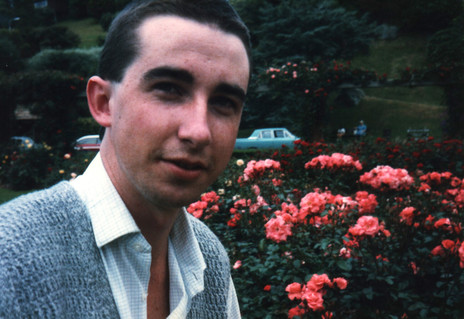
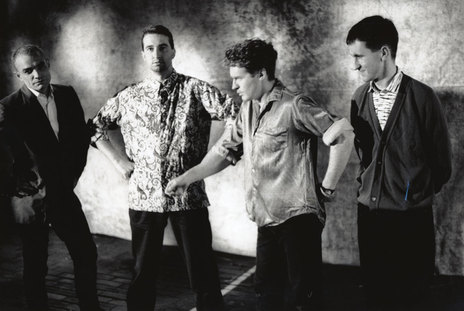
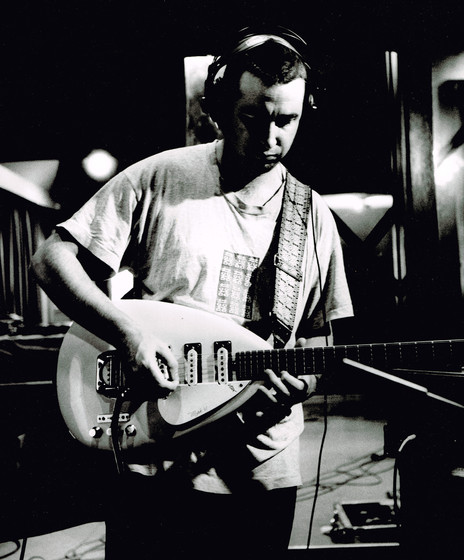
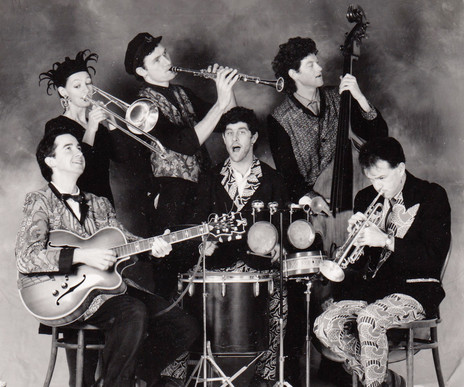
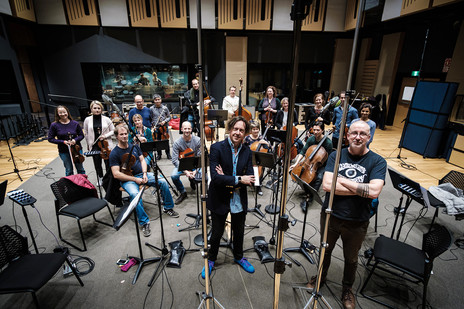
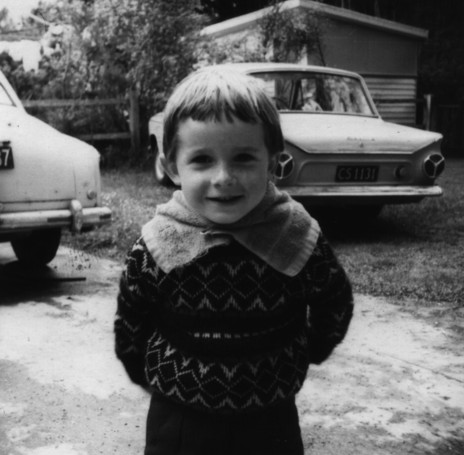
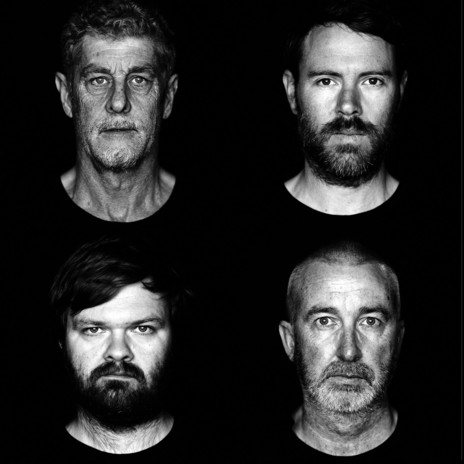
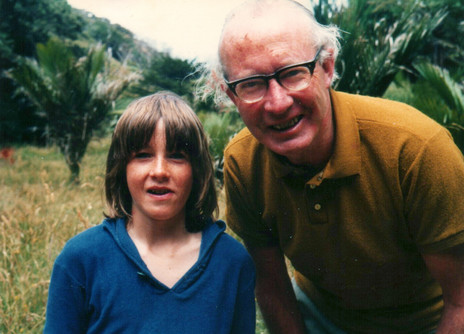
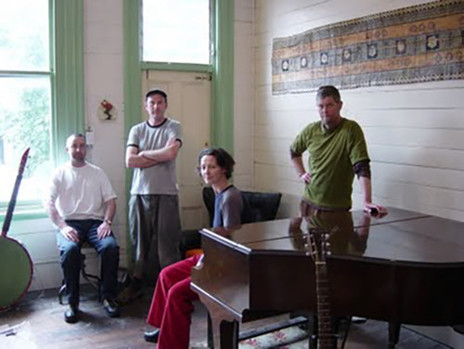
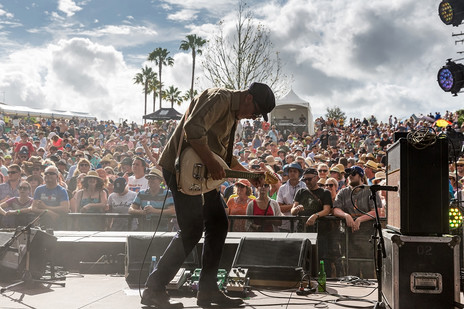
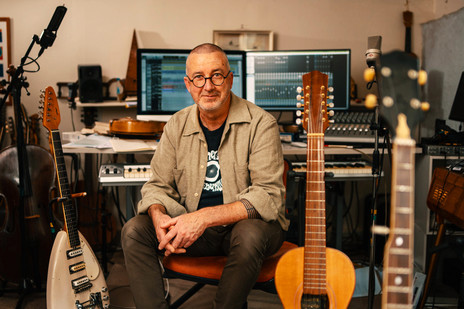
Visit our sister site
NZ On ScreenMade with funding from
NZ On Air